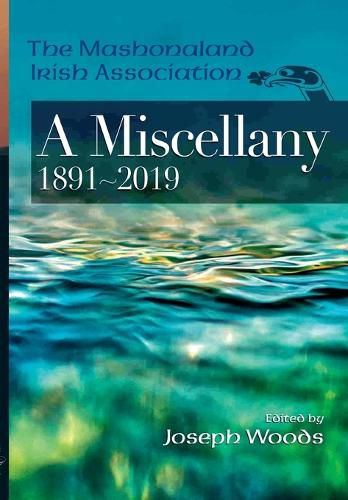Readings Newsletter
Become a Readings Member to make your shopping experience even easier.
Sign in or sign up for free!
You’re not far away from qualifying for FREE standard shipping within Australia
You’ve qualified for FREE standard shipping within Australia
The cart is loading…






This title is printed to order. This book may have been self-published. If so, we cannot guarantee the quality of the content. In the main most books will have gone through the editing process however some may not. We therefore suggest that you be aware of this before ordering this book. If in doubt check either the author or publisher’s details as we are unable to accept any returns unless they are faulty. Please contact us if you have any questions.
With a raucous St Patrick’s Day dinner at Fort Salisbury (Harare) in 1891, a mere seven months after the Pioneer Column raised their flag on Cecil Square, the Mashonaland Irish Association was founded. Not only is it the oldest expatriate association in Zimbabwe, the MIA is the oldest Irish association on the African continent. The association developed into a vehicle for celebrating Irishness through a busy social calendar and welfare programmes. For over a century, the MIA has weathered the various challenges and upheavals of a shared colonial experience and Zimbabwe’s struggle for independence. Today, it continues to celebrate all things Irish while embracing its diaspora as it approaches its thirteenth decade of existence.
This Miscellany charts the association from its inception to the present day with contributions from historians, scholars, writers and poets, priests, nuns, missionaries, ex-MIA Presidents and members; the diverse contributions range from the colonial Anglo-Irish to the Jewish-Irish experience and throughout, personalities have been resurrected, colourful ones recorded and even the Minute books examined; all attest to the richness of the association, its events but above all its members. Cumulatively, and beyond the stories of individuals, the narrative provides new insights into the layered complexity of the colonial experience, and the adaptation (or not) of people of a different culture and belief into a foreign setting.
$9.00 standard shipping within Australia
FREE standard shipping within Australia for orders over $100.00
Express & International shipping calculated at checkout
This title is printed to order. This book may have been self-published. If so, we cannot guarantee the quality of the content. In the main most books will have gone through the editing process however some may not. We therefore suggest that you be aware of this before ordering this book. If in doubt check either the author or publisher’s details as we are unable to accept any returns unless they are faulty. Please contact us if you have any questions.
With a raucous St Patrick’s Day dinner at Fort Salisbury (Harare) in 1891, a mere seven months after the Pioneer Column raised their flag on Cecil Square, the Mashonaland Irish Association was founded. Not only is it the oldest expatriate association in Zimbabwe, the MIA is the oldest Irish association on the African continent. The association developed into a vehicle for celebrating Irishness through a busy social calendar and welfare programmes. For over a century, the MIA has weathered the various challenges and upheavals of a shared colonial experience and Zimbabwe’s struggle for independence. Today, it continues to celebrate all things Irish while embracing its diaspora as it approaches its thirteenth decade of existence.
This Miscellany charts the association from its inception to the present day with contributions from historians, scholars, writers and poets, priests, nuns, missionaries, ex-MIA Presidents and members; the diverse contributions range from the colonial Anglo-Irish to the Jewish-Irish experience and throughout, personalities have been resurrected, colourful ones recorded and even the Minute books examined; all attest to the richness of the association, its events but above all its members. Cumulatively, and beyond the stories of individuals, the narrative provides new insights into the layered complexity of the colonial experience, and the adaptation (or not) of people of a different culture and belief into a foreign setting.